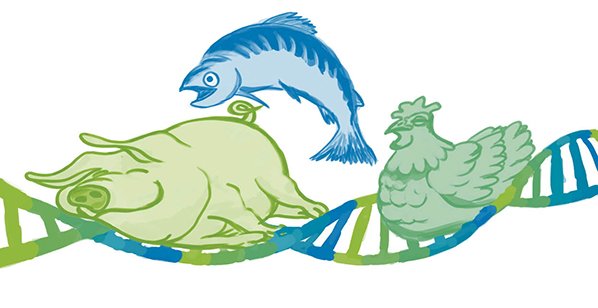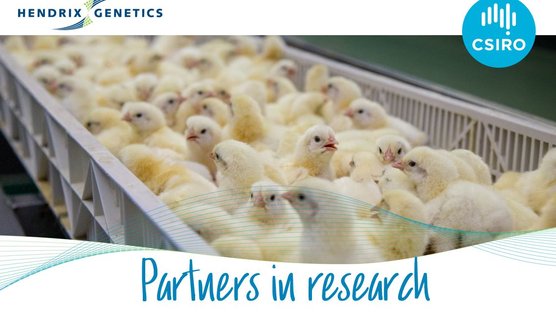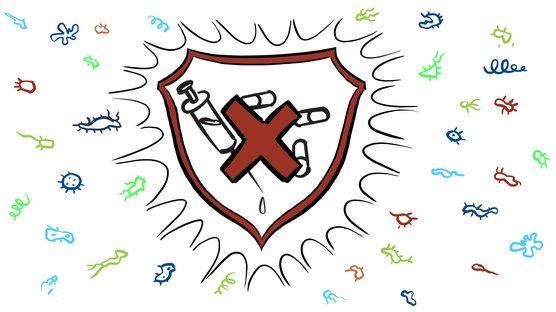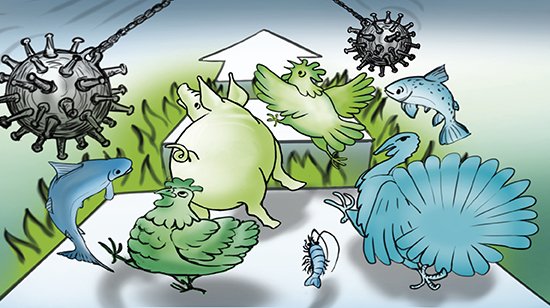
Published on Sept. 23, 2020
Reducing stress on a global scale
We understand the complexity and expertise needed to run successful farming operations across the globe. Life can be stressful and especially with the impact of Covid-19, we all are feeling the squeeze of everyday life and the impact of our environment.
We want to ensure that the animals we breed can handle stress and thrive in the environments we provide. As an animal's temperament is determined through genetic and environmental factors, Hendrix Genetics continuously focuses to ensure that animal welfare is a priority in all of our breeding programs and sets standards to reduce stress for all our animals in production.
Doing our part
There are many reasons one can feel stressed. With this, there are also many impacts stress can have on our physical and emotional state. For animals this is no different. Stress can easily present itself in a variety of ways, at any time. Hendrix Genetics actively looks for ways we can improve the overall health and well-being of all animals not only under our care but within the entire industry.
Our sustainability program was created to contribute to a sustainable future, ensuring the wellbeing of present and future generations. Using our material stakes, Hendrix Genetics prioritizes focus on initiatives like animal welfare, expertise and continuous improvement of our breeding programs to ensure advancement for the future of animal breeding.
To us, animal welfare is a core area of focus and we believe that breeding healthy, happy animals requires more than just the basics of food, water and shelter. Hendrix Genetics has implemented an animal welfare policy across all breeding activities while also creating standard operating procedures (SOP’s) specifically tailored to characteristics of the animals and the specific regulations of the sector. Internal and external audits are also conducted on a regular basis to evaluate our compliance.
Setting standards to mitigate stress
In addition to these, all of our breeding programs have taken steps towards setting the standard for others in limiting or reducing stress on the animals we breed. These initiatives are just a few examples of our efforts to continuously improve the welfare of animals in our care and to set an example for the industry.
Layers – Hendrix Genetics is one of 20 partners working together as part of The ChickenStress European Training Network (ETN). This project will train future leaders in a range of scientific studies of poultry stress responsivity in various environments, including the impact of their housing system and feed program on health and welfare. The ChickenStress project aims to find out how the stress response is regulated in the bird’s brain and how genetics and living environment of the laying hen can reduce chronic stress.
Traditional poultry – To ensure that the animals we select will be healthy and strong in the African climate, we test our birds in hot and challenging environments. Each of our products have been bred for specific needs, depending on the region. Products bred for African markets are highly robust, meaning the birds will thrive even when raised in harsh conditions with low quality feed and exposed to diseases. Breeding for strong, healthy animals from the start allows them to be resilient, limiting the impact of stress from health or environment challenges.
Turkeys –Hybrid Turkeys animal welfare program includes standard practices implemented globally and enhanced training for all employees. This large-scale initiative began in 2014, to roll out new training and standard practices surrounding the euthanasia of turkeys. Reviewing all approved methods of euthanasia to search for a method that was most humane for the bird, providing a high level of safety and compliance for our staff, and that would be most accepted by society. After careful consideration, it was decided to move to CO2 systems for euthanasia in all production locations around the world. This eliminates any additional stress caused from injury or segregation from the flock.
Aquaculture – Using underwater vision technology geared towards the development of automated phenotyping, Hendrix Genetics aims to identify and measure aquaculture breeding stock without ever having to take the fish out of water, increasing focus on animal welfare and limiting stress during handling.
Swine – Our breeding program for dam lines require all purebred sows to be housed in groups. By doing this, we are able to choose sows that will perform well under these conditions and select based on behaviour and mothering ability. Selecting good mothers that can farrow and wean as many pigs as the number of functional teats, eliminating the extra care of applying cross fostering which can be very stressful for piglets.
In addition to limiting additional stress, we also joined an alliance to end surgical castrations of swine. Using precision breeding technology, Hendrix Genetics aims to develop male piglets naturally born castrated. This would offer many advantages for production cost savings and more importantly, this would have a huge impact on animal welfare for the entire industry. .
Limiting stress for animals in production and our breeding programs is a task that needs continuous evolution. The benefits of living a stress-free life are endless, and easy to identify. Hendrix Genetics strives to lead the industry towards producing more happy, healthy animals that thrive in all environments across the globe. By setting standards for the future of animal breeding we can influence better breeding today, for a brighter life tomorrow.



